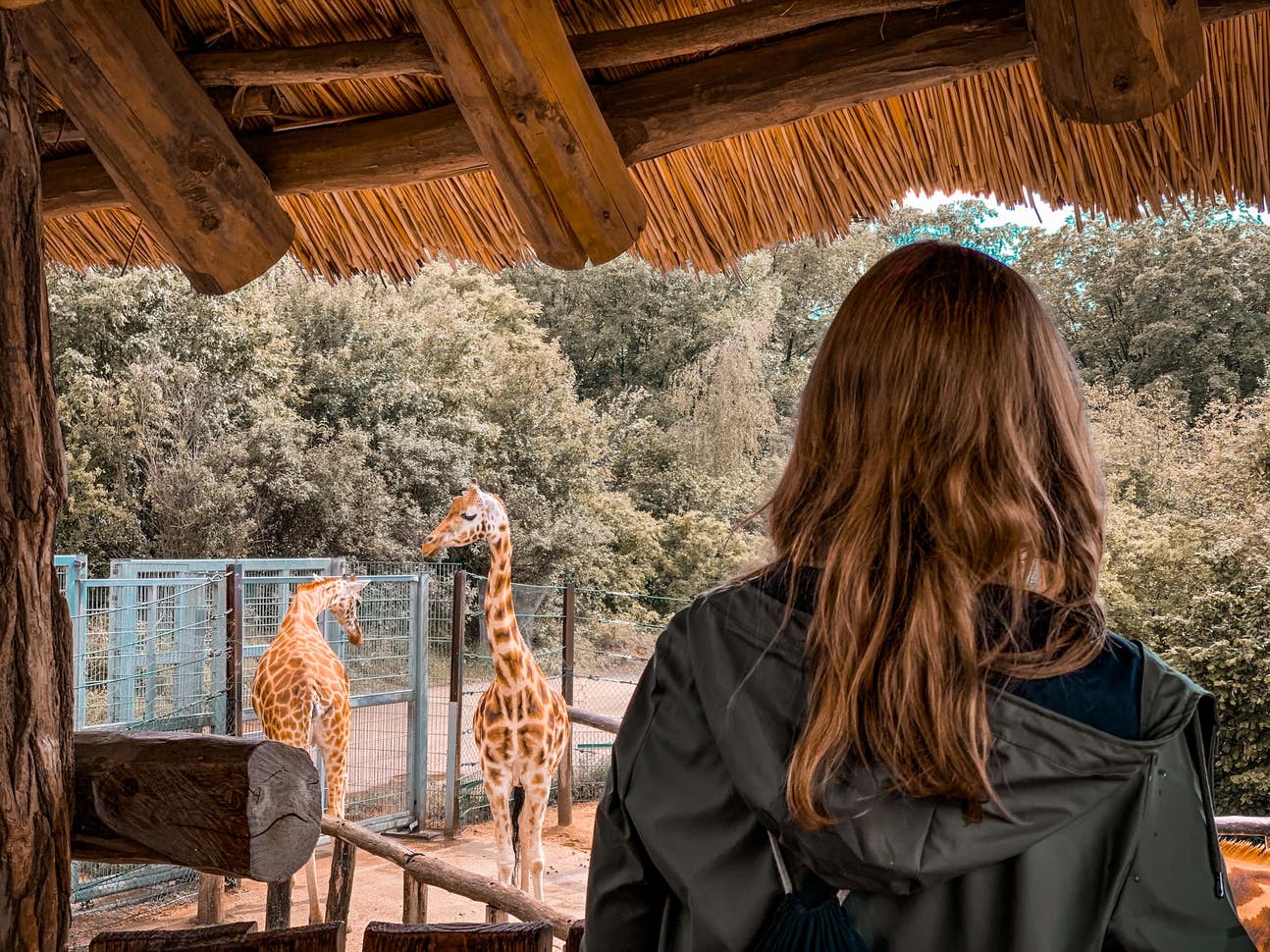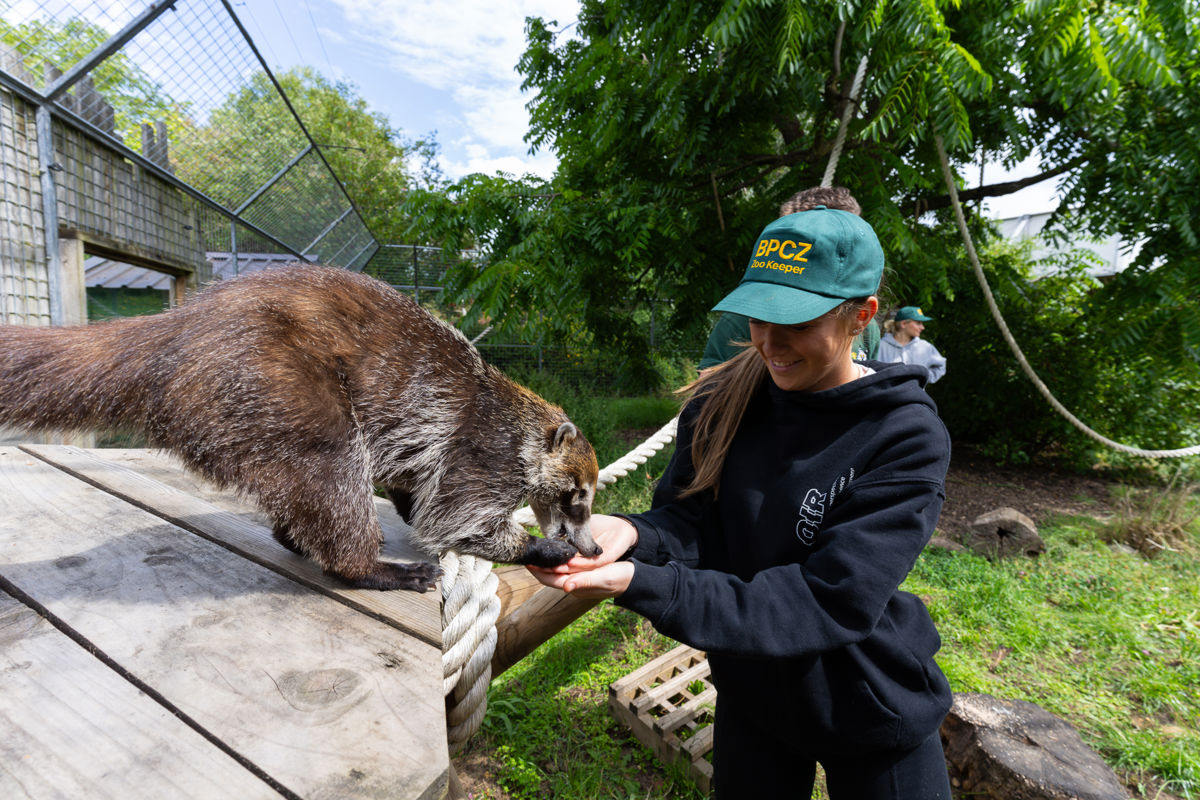How To Become A Zoo Keeper?
페이지 정보

본문
"The greatness of a country and its ethical progress can be judged by the way its animals are treated." - Mahatma Gandhi

Do you like animals and imagine working in a zoo? Zoo keepers are type in securing wildlife and taking care of animals. At locations like the Zoological Society of London (ZSL), over 20,000 animals get the care they require from professionals.
To become a zoo keeper, you need hard work, education, and a love for animals. This task is exciting, letting you deal with numerous types and help with crucial preservation work. If you're into wildlife or animal welfare, zookeeping might be best for zookeeper you.
Starting your zoo keeper profession implies discovering what's required. This guide will cover education, experience, and more. It's all you need to understand to start a satisfying zookeeping career.
Understanding the Role of a Zookeeper
Exploring what a zookeeper does exposes a role loaded with obstacles and benefits. They concentrate on animal welfare and preservation. Zookeepers work hard to keep animals healthy and pleased in their care.
Daily Responsibilities and Tasks
A zookeeper's day is filled with essential tasks:
- Preparing meals that satisfy each animal's dietary needs
- Cleaning enclosures to keep them tidy and safe
- Watching over animal health and behaviour
- Giving medicines and treatments as needed
- Developing activities to keep animals psychologically sharp
Working Environment and Conditions
Zookeepers work outside in all sort of weather. They handle both indoor and outdoor areas. The job needs being physically fit and able to deal with the demands of caring for animals.
"Being a zookeeper is more than a job - it's a passionate dedication to animal care and preservation."
Types of Animals and Specialisations
Zookeepers can specialise in lots of animal groups:
- Primates
- Big cats
- Marine mammals
- Reptiles
- Birds
Your function might include working with 2-5 different animal species. This requires a lot of knowledge and the capability to adapt.
Necessary Skills and Personal Qualities for Zoo Keeping
To be a top zookeeper, you require more than simply a love for animals. Your task will be difficult and require you to manage animals and individuals well. You'll likewise require to comprehend animal behaviour.
What zoos try to find in people consists of:
- Exceptional persistence and emotional durability
- Strong fitness and endurance
- Eager observation abilities
- Capability to remain calm under pressure
- High level of empathy towards animals
Getting hands-on experience is crucial to mastering this role. You'll need to reveal:
- Advanced understanding of animal care methods
- Proficiency in animal handling and security procedures
- Reliable communication with both animals and human visitors
"A great zookeeper connects science, empathy, and preservation in every interaction with animals."
You need to understand about animal nutrition, behaviour, zookeeper and fundamental veterinarian care. The majority of zookeepers learn through training, volunteering, and continuous knowing.
Zookeeper work is not simply a job. It's a big dedication to teaching about wildlife and helping preservation. Your enthusiasm and hard work will make you stand apart in this fulfilling profession.
How to Become a Zoo Keeper
Beginning a profession as a zookeeper requires mindful planning and education. You need to first comprehend the educational needs and training paths. These will turn your love for animals into a task.
Educational Requirements
To be a fantastic zookeeper, you require a strong academic base. Many tasks search for particular qualifications:
- At least 5 GCSEs at grade 4 or above, consisting of English, maths, and science
- A levels or college qualifications
- A college degree in biology or animal science
- Level 3 Diploma in Animal Management
Needed Certifications
Getting unique certifications can really help you in your zookeeper profession. Crucial ones include:
- Diploma in Management of Zoo and Aquarium Animals (DMZAA)
- Zookeeping Level 3 Diploma (RQF)
- Animal managing certificates
- Emergency treatment certifications
Training Programs and Apprenticeships
Getting hands-on experience is type in zookeeper training. Lots of locations use great possibilities:
- Unpaid apprenticeships at wildlife parks
- Internship programs at well-known zoos
- Practical training at places like Colchester Zoo and Dartmoor Zoo
- Offering to gain real-world abilities
Pro idea: Create an in-depth portfolio to show your animal care skills. It will assist you in job applications.
Building Relevant Experience in Animal Care
Getting hands-on experience is key for those wanting to be zookeepers. The job is extremely competitive. So, it's important to begin developing a strong base in animal care.
Your journey starts with finding ways to work directly with animals. This is a tactical step.

"Experience is the best teacher in animal care" - Wildlife Conservation Experts
Here are effective ways to acquire experience working with animals:
- Volunteer at local animal shelters to develop basic animal dealing with abilities
- Seek internships at wildlife rehabilitation centres
- Check out part-time positions at veterinary clinics
- Contact your local zoo for possible volunteer opportunities
Volunteering is an excellent way to learn more about animal behaviour and care. Many zoos and animal shelters are trying to find people who wish to discover. These locations offer excellent chances to get hands-on experience and show your commitment to animal welfare.
Here are some tips to take advantage of your experience:
- Keep a record of your skills and interactions
- Connect with professionals in animal care
- Request for recommendations and letters of recommendation
- Stay relentless and reveal your real enthusiasm
Keep in mind, useful experience makes you stand out in the zookeeping world. Whenever you work with animals, you discover more. This increases your chances of getting a job in animal care.
Career Pathways and Professional Development
Beginning a profession as a zookeeper is exciting. It provides numerous chances to grow and specialise. Your journey starts with comprehending the different courses in this field.
Entry-Level Positions
Entry-level jobs in zookeeping are a great start. They provide you hands-on experience. Zoos try to find with:
- Level 2 Diploma in Animal Care (minimum certification)
- GCSEs in English and a clinical subject
- Volunteer experience at animal shelters or farms
Profession Progression Opportunities
As you gain experience, your career can grow. You can go up to:
- Junior Keeper
- Senior Keeper
- Team Leader
- Professional Roles
"Continuous knowing and useful experience are key to advancing in your zookeeping profession."
Specialised Roles
You can likewise choose unique areas like:
- Conservation breeding programs
- Animal training
- Wildlife research study
- Educational outreach
About 25% of zookeepers get advanced degrees in zoology or animal preservation. Getting Level 4 certifications can boost your chances for senior roles and research.
Working Hours and Physical Demands
Becoming a zookeeper implies you'll work more than simply regular hours. You'll face tough physical obstacles and require to be versatile, consisting of weekends and holidays. Zoos are open every day, so you'll often work when others relax.
"Zoo keeping is not a typical 9-to-5 job-- it's a lifestyle of devoted animal care and dedication."
This job is physically demanding. You'll work outside in any weather condition, lifting heavy products over 50 pounds. Your tasks might consist of:
- Early morning feeding schedules
- Cleaning animal enclosures
- Preparing specialised diet plans
- Carrying out health checks
- Keeping intricate habitats
Shifts can begin as early as 5 AM and go late into the night. You'll be on your feet the majority of the time, moving between animal zones. Weekends and holidays become part of the task, needing great deals of endurance and devotion.
In spite of the obstacles, this job has excellent benefits. You'll grow strong, both physically and emotionally. You'll likewise make amazing connections with incredible animals.
Health and Safety Considerations
Being a zookeeper comes with its own set of obstacles. It's crucial to understand how to keep both animals and personnel safe. This indicates following strict health and safety guidelines.
Zookeepers face an unique environment where safety is essential. Studies reveal that health and wellness are now as important as the zoo's primary work.
.jpg)
Danger Management Strategies
There are several methods to manage risks in zoos:
- Daily checks of animal enclosures for zookeeper threats
- Counting animals at the start and end of shifts
- Enjoying how visitors act near animals
- Being ready for emergencies
Animal Handling Safety Protocols
Knowing which animals are most hazardous is important. Huge animals like rhinos can be very risky. There have been cases where zookeepers got seriously harmed.
Security isn't just about wearing equipment - it's about knowing animal behaviour and staying alert.
Individual Protective Equipment
Zookeepers require to wear the best gear, including:

- Special gloves for dealing with animals
- Strong shoes for grip and security
- Clothes that secures versus germs
Getting immunized against illness like liver disease B and rabies is likewise essential. It helps keep zookeepers healthy in their tough job.
Income Expectations and Job Market
Thinking of a career in zoo keeping? It's essential to know about incomes and the task market. The field is growing, with more opportunities in the UK.

Let's look at what zoo keepers can make at different phases:
- Entry-level zookeepers begin at about ₤ 14,000 a year
- Qualified ones make in between ₤ 16,000 and ₤ 22,000
- Senior zookeepers can make as much as ₤ 30,000 or more
The job outlook for zoo keepers is great. The sector is anticipated to grow by 5% in the UK by 2029. This implies around 3,910 new jobs will be available.
"The Association of Zoos and Aquariums supports expert growth for zoo keepers," a report says.
Wages vary based upon several things:
- Experience level
- Expertise
- Where you work
- The zoo's size and type
While the pay might not be high, the happiness of working with animals is invaluable. The average income is around ₤ 17,000. But, zookeeper total earnings can be in between ₤ 13,000 and ₤ 27,000 a year.
Conclusion
Beginning a career in animal care is an exciting journey. It requires commitment, passion, and a love for learning. With over 350 zoos and wildlife places in the UK, there are lots of task chances. You'll get to deal with incredible animals and help protect wildlife.
To be a zoo keeper, you require more than simply love for animals. You must have a good understanding of biology, be able to communicate well, and constantly wish to learn more. You'll gain hands-on experience, learn more about animal welfare, and establish a deep respect for nature. About 3,000 individuals in the UK have discovered satisfying careers in this field.
Your success in zoo keeping comes from blending science with a love for animals. Whether you're interested in mammals, birds, or marine life, this job lets you aid with preservation. Every day will bring brand-new challenges and discovering opportunities that will enhance your skills and knowledge.
If you love animals and want to help protect wildlife, zoo keeping might be for you. Handle the challenge, remain curious, and turn your passion for animals into a gratifying career.
- 이전글레비트라 복용후기 레비트라 약국처방전 25.02.06
- 다음글Nine Questions Answered About High Stakes Download Link Http Dl Highstakesweeps Com 25.02.06
댓글목록
등록된 댓글이 없습니다.

